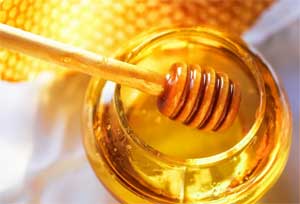- Home
- Editorial
- News
- Practice Guidelines
- Anesthesiology Guidelines
- Cancer Guidelines
- Cardiac Sciences Guidelines
- Critical Care Guidelines
- Dentistry Guidelines
- Dermatology Guidelines
- Diabetes and Endo Guidelines
- Diagnostics Guidelines
- ENT Guidelines
- Featured Practice Guidelines
- Gastroenterology Guidelines
- Geriatrics Guidelines
- Medicine Guidelines
- Nephrology Guidelines
- Neurosciences Guidelines
- Obs and Gynae Guidelines
- Ophthalmology Guidelines
- Orthopaedics Guidelines
- Paediatrics Guidelines
- Psychiatry Guidelines
- Pulmonology Guidelines
- Radiology Guidelines
- Surgery Guidelines
- Urology Guidelines
Manuka honey kill drug-resistant bacteria linked to cystic fibrosis infections, finds a study

Manuka honey shows potential as a breakthrough treatment against a wide range of P. aeruginosa isolates associated with cystic fibrosis patients, suggests the findings of a study which appeared in Frontiers of Microbiology.
CF is one of the life-threatening inherited diseases. A government review led by Lord Jim O'Neill also highlighted the threat of antimicrobial resistance, estimating that a continued rise in resistance by 2050.
Dr. Rowena Jenkins and Dr. Aled Roberts have found that using Manuka honey could offer an antibiotic alternative to treat antimicrobial resistant respiratory infections, particularly deadly bacteria found in Cystic Fibrosis (CF) infections.
Using lung tissue from pigs, experts treated grown bacterial infections mimicking those seen in CF patients with Manuka honey. The results showed that it was effective in killing antimicrobial resistant bacteria by 39% compared to 29% for antibiotics, whilst improving the activity of some antibiotics that were unable to function effectively by themselves, honey and antibiotics combined killed 90% of the bacteria tested.
A problem that CF patients suffer from is chronic and long-lasting respiratory infections which often prove fatal due to the presence of certain bacteria that are resistant to many (if not all) the antibiotics that doctors currently have at their disposal.
Bacteria that cannot be removed from the lungs through antibiotic treatment can, as a last resort, be removed by providing patients with newly transplanted lungs. This has some associated risks, however, as the bacteria that caused the original infection can still be found in the upper airway, and migrate into the new lungs, thus making the transplant ineffective.
Some patients have a worse prognosis as they are infected with deadly types of bacteria, such as Pseudomonas and Burkholderia cepacia complex, which are difficult to kill (due to multiple antibiotic resistance) and cause extensive damage to the lungs. In some instances, merely their presence within a patient can prevent them from receiving life-saving lung transplants.
The effectiveness of antibiotics against these deadly infections is a huge concern, making the need to find suitable, non-toxic alternatives, which are effective at killing the bacteria a top priority.
Honey has been used for thousands of years as a medicinal product. More recently, research has shown that Manuka honey is capable of killing antibiotic-resistant bacteria present in surface wounds. Funding from The Waterloo Foundation and The Hodge Foundation has allowed research to look at it as an antibiotic alternative in CF infections.
Dr Rowena Jenkins, Lecturer in Microbiology and Infectious Diseases at Swansea University, said:
"The preliminary results are very promising and should these be replicated in the clinical setting then this could open up additional treatment options for those with cystic fibrosis infections.
"The synergy with antibiotics and absence of resistance seen in the laboratory has allowed us to move into the current clinical trial, investigating the potential for Manuka honey as part of a sinus rinse for alleviating infection in the upper airway."
For more details click on the link: http://dx.

Disclaimer: This site is primarily intended for healthcare professionals. Any content/information on this website does not replace the advice of medical and/or health professionals and should not be construed as medical/diagnostic advice/endorsement or prescription. Use of this site is subject to our terms of use, privacy policy, advertisement policy. © 2020 Minerva Medical Treatment Pvt Ltd